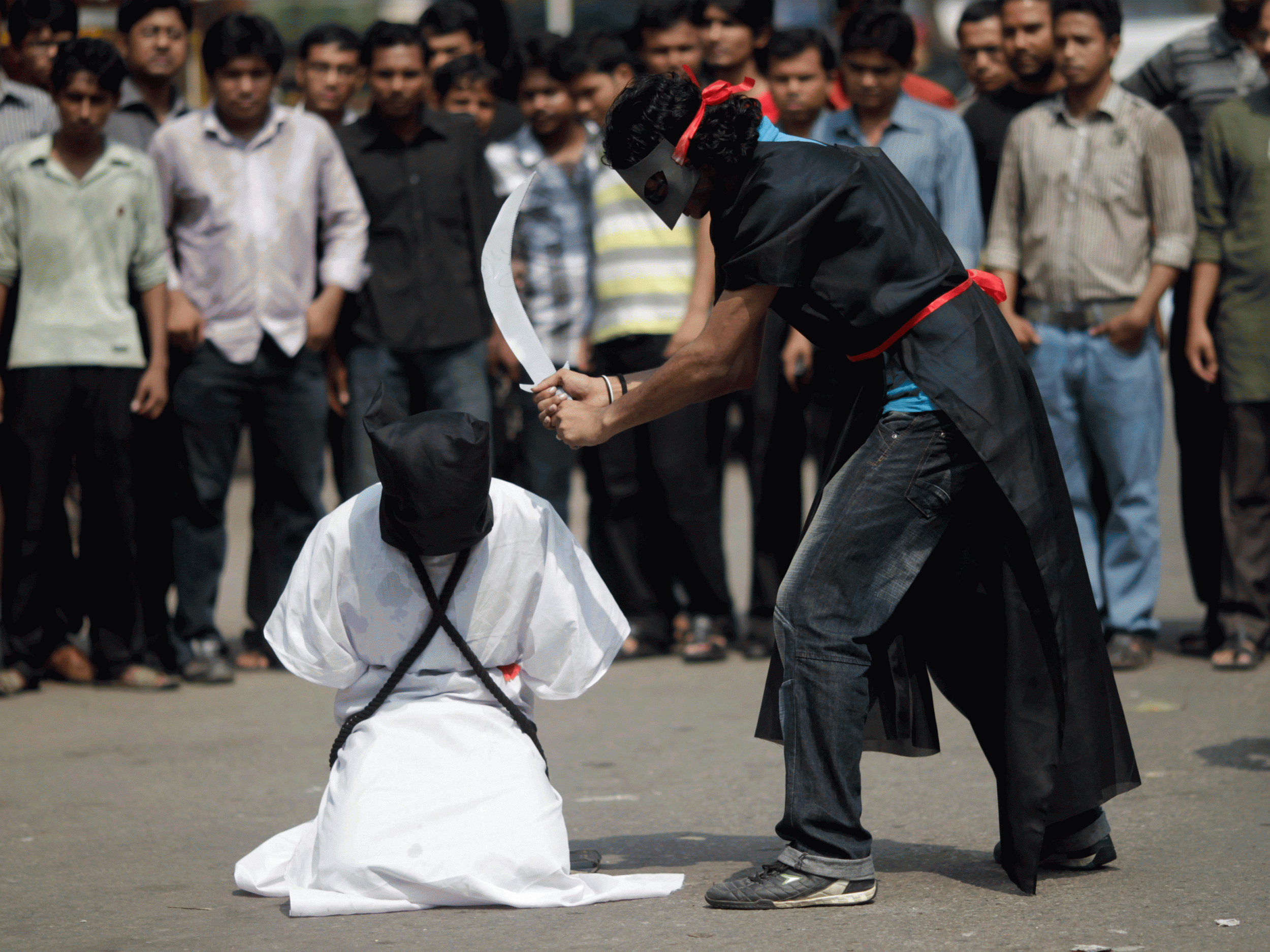Saudi Arabia 'executes 99th person this year' to overtake 2015 rate
'Saudi Arabia is out of step with a global trend of states moving away from the death penalty', says Amnesty International

Your support helps us to tell the story
From reproductive rights to climate change to Big Tech, The Independent is on the ground when the story is developing. Whether it's investigating the financials of Elon Musk's pro-Trump PAC or producing our latest documentary, 'The A Word', which shines a light on the American women fighting for reproductive rights, we know how important it is to parse out the facts from the messaging.
At such a critical moment in US history, we need reporters on the ground. Your donation allows us to keep sending journalists to speak to both sides of the story.
The Independent is trusted by Americans across the entire political spectrum. And unlike many other quality news outlets, we choose not to lock Americans out of our reporting and analysis with paywalls. We believe quality journalism should be available to everyone, paid for by those who can afford it.
Your support makes all the difference.Saudi Arabia has executed its 99th person this year, continuing the trend to more death penalties yearly in the Kingdom.
The conservative country, which publicly beheads citizens and foreigners for a variety of crimes, has reportedly executed more people than this time last year by reaching almost 100 this month.
Accused murderer Hassan bin Mubarak al-Amri was the 99th person to be executed in the state-sanctioned punishment, which is usually performed with a sword.
Sara Hashah, Amnesty International's Middle East and North Africa spokesperson, said Saudi Arabia, Pakistan and Iran were responsible for 90 per cent of all recorded executions globally and were "out of step" with the rest of the world.
"In Saudi Arabia, where people are routinely sentenced to death after grossly unfair trials, we have seen a dramatic surge in the number of executions in the past two years which has shown no sign of abating in 2016," she told The Independent.
"This clearly demonstrates that Saudi Arabia’s authorities are increasingly out of step with a global trend of states moving away from the death penalty.
"Saudi Arabia’s authorities must end their reliance on this cruel, inhuman and degrading form of punishment immediately.”
The number of death sentences in the Kingdom was swelled by the 47 people executed on January 2 on charges of Al Qaeda-related terrorist activity. The execution of a Shia cleric among them provoked international condemnation and the cutting-off of diplomatic ties between Riyadh and Tehran.
Last year was already a record-high for executions in Saudi Arabia, with 158 people sentenced to death in total compared to 90 in 2014.
It is also one of the few countries in the world to carry out public rather than private executions. The others are Iran, Afghanistan, Yemen, Syria, North Korea and Somalia. All Middle Eastern and North African countries use the state-sanctioned death penalty except for Oman and Israel.
Punishment by decapitation or other means is considered in some Arab countries to be an accurate interpretation of shari'ah law, which includes the Islamic law concept of qisas, or eye-for-an-eye retribution for murder. But critics point out that nonviolent drug offences make up a significant part of those sentenced to death in Saudi Arabia.
Nor has the punishment always been deployed, with Pakistan, Egypt and Jordan using it more frequently now than in previous years.
After an eight-year halt in executions, Jordan resumed its use of the death penalty in December 2014 when authorities executed 11 men on murder charges, with a further execution taking place in February 2015.
A terrorist attack on school children in Peshawar in northwestern Pakistan, meanwhile, also prompted a resurgence of the death penalty in the country. Mass executions and death sentences in Egypt have even targeted pro-democracy protesters.
Iran remains the most prolific executor of its people, outstripping China's larger record in terms of numbers by proportion of the Iranian population executed.
But four countries banned the use of the death sentence completely in 2015: Fiji, Madagascar, Republic of Congo and Suriname, with Mongolia expected to follow suit in September 2016.
Ms Hashash said Saudia Arabia belonged to "an increasingly isolated minority, as for the first time ever in 2015 a majority of the world's countries fully abolished the death penalty."
Crimes punishable by beheading, stoning or firing squad in Saudi Arabia include: blasphemy, drug offences, adultery, murder, armed robbery, rape and false prophecy.
Several states in the US also sanction the death penalty. Last year, 28 death row prisoners were executed, all by lethal injection.
Join our commenting forum
Join thought-provoking conversations, follow other Independent readers and see their replies
Comments